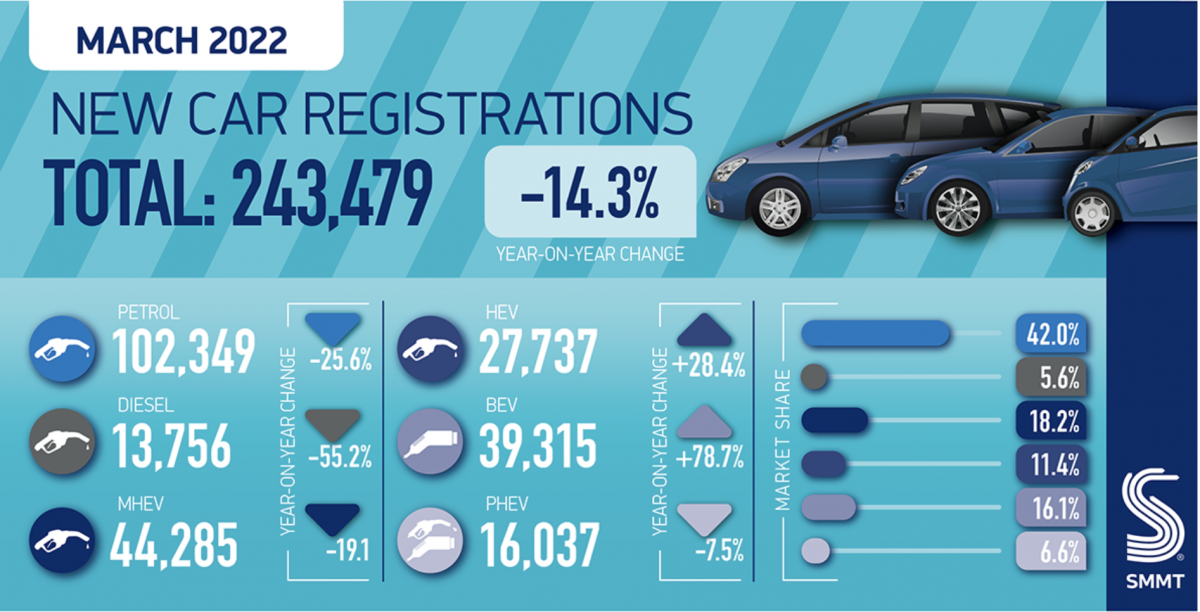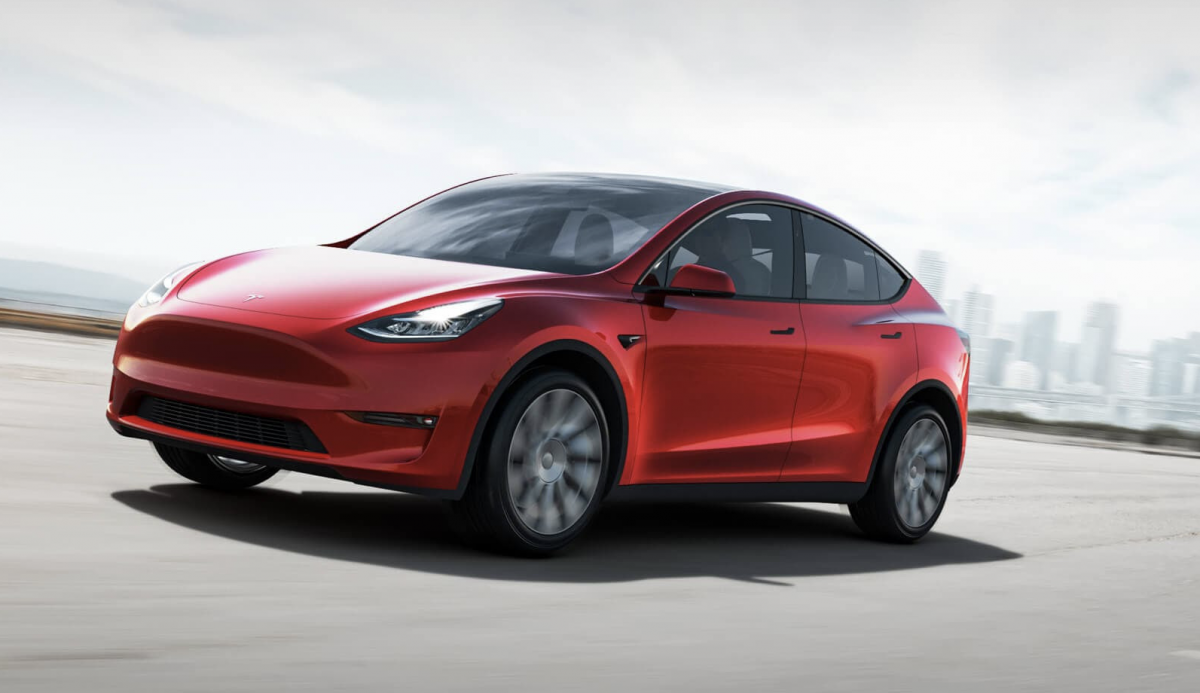In March 2022, across the UK we bought more electric vehicles than we did throughout the whole of 2019. We’ve known for a while that there would be expedited growth in the EV market, but why now? In autumn 2021 the UK Government reiterated their pledge to end the sale of new diesel and petrol cars by 2030, when the country hosted world leaders in Glasgow for #COP26. However, it has been well documented over the last 12 months, that ongoing microchip shortages and supply chain issues have had a significant impact on new car deliveries. So what does this all mean for you?
How many EVs are actually being sold?
In March 2022, Battery Electric Vehicle (BEV) sales saw a 78.7% growth year-on-year to 39,315 units, with all electrified vehicles accounting for every 1 in 3 registrations and representing a 16.1% market share. This is in direct contrast to an overall decrease in new car registrations, which declined 14.3% in March, the weakest March since 1998.
 Society of Motor Manufacturers and Traders
Society of Motor Manufacturers and Traders
Which EVs are most popular?
Tesla took the number 1 and 2 top spots in March, with the Tesla Model Y overtaking the 2021 ‘best-selling’ EV, its sibling, the Tesla Model 3 in registering the highest number of new car sales. This is likely reflective of their industry-leading shorter lead-times, with new car deliveries around 3-5 months from order.

What could prevent continued growth?
While the world is now on the road to post-pandemic recovery, there are some ongoing issues which will continue to affect the automotive industry. The end of the ongoing microchip shortage is difficult to predict, with many industry experts reporting late 2022, early 2023 as the first time when production may speed up.
Local authorities have had challenges with their public charging infrastructure due to the pandemic. Delays to planning, and installation, have resulted in fewer public charging points being available than hoped. This will affect those in an urban location who may rely more on the public network, especially those that live in properties without a driveway available for home charging. At P+B we often use Zap-Map, a handy app which shows you the location and availability of charging points across your local area.
However there are challenges too with traditional petrol/diesel vehicles with customers also being affected by the global microchip shortage. When combined with the high fuel costs currently being advertised at forecourts across the UK, a move to an EV may still be tempting, even with a slightly longer wait.
What's next?
As we move through the year, we will keep you updated on the EV marketplace and things you need to be aware of. We expect sales of EVs to continue to be popular, and while lead times do vary, adopting an EV in 2022 may still be the best move for you.








